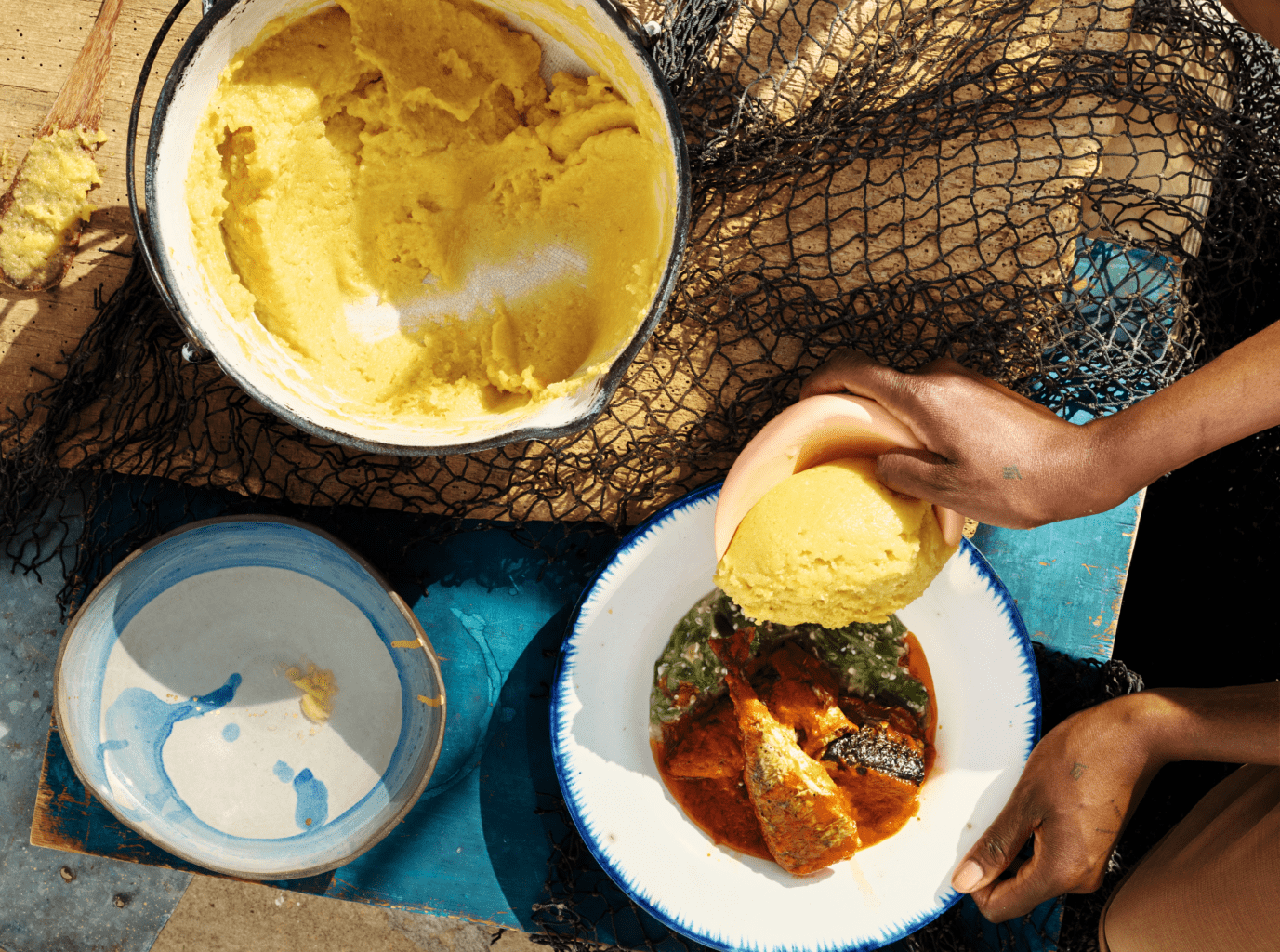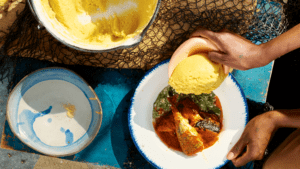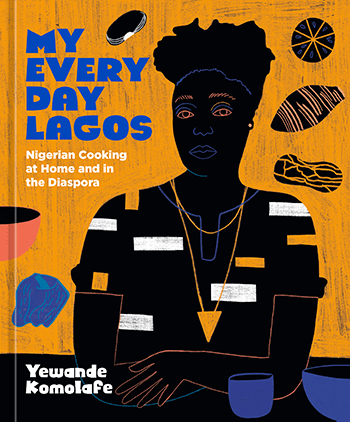 Pounding a cooked starch is usually done in a large mortar with a pestle as long as four-to-six feet. Pounding starches is a classic technique learned and perfected over time, and for most Lagosians making swallows this way is sometimes reserved only for special occasions. The process begins with crushing the freshly cooked starch with the pestle, slowly adding hot water to soften the starch. The pestle not only pounds, but also kneads the starch, and the resulting dough has a smooth, glutinous texture like bread dough. Pounded yam is a common starch prepared in this way but plantains, cassava, and rice also get this treatment.
Pounding a cooked starch is usually done in a large mortar with a pestle as long as four-to-six feet. Pounding starches is a classic technique learned and perfected over time, and for most Lagosians making swallows this way is sometimes reserved only for special occasions. The process begins with crushing the freshly cooked starch with the pestle, slowly adding hot water to soften the starch. The pestle not only pounds, but also kneads the starch, and the resulting dough has a smooth, glutinous texture like bread dough. Pounded yam is a common starch prepared in this way but plantains, cassava, and rice also get this treatment.
The mortar itself is a work of art, usually carved by hollowing out a cut section of a tree trunk. The pestle is also shaped from a section of a tree trunk. A mortar and pestle of this type, when kept and stored properly, can last several generations.

Swallows - Pounded Method
Ingredients
- 1 pound yam, cassava, sweet potato or green plantains
Instructions
- Remove the skin on the yam, cassava or sweet potato by peeling with a paring knife or a vegetable peeler. Cut into 1½-inch pieces and move the peeled roots to a bowl of water to keep from turning brown. In a medium-sized pot, add your peeled starches and cover with water by 2 inches. Bring the pot up to a simmer over medium heat and cook until completely tender, 12 to 15 minutes. Reserve 2 cups of the cooking liquid, then drain out the remaining liquid.
- Move the cooked starch to a large mortar and pestle. Pound till crushed to a coarse paste. Add 1 cup of the reserved cooking liquid and continue pounding, adding up to an additional 1 cup reserved cooking water in small quantities at a time to soften until the paste is a smooth slightly glossy and elastic consistency.
- To serve, fill a small bowl with some room temperature water and wet a large serving spoon by dipping it into the water. Divide and shape the dough using the wet spoon to shape into large (3- to 4-inch), slightly rounded balls. Transfer each ball into a shallow bowl as you shape it. Serve alongside Ẹ̀fó Rírò or any soups.
Notes
 Recipe reprinted with permission from My Everyday Lagos by Yewande Komolafe (Clarkson Potter, a division of Penguin Random House, LLC, 2023). Photography by Kelly Marshall.
Recipe reprinted with permission from My Everyday Lagos by Yewande Komolafe (Clarkson Potter, a division of Penguin Random House, LLC, 2023). Photography by Kelly Marshall.
